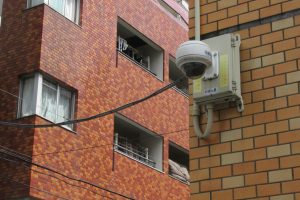Over the past year, few topics have dominated industry conversations as thoroughly as artifi cial intelligence (AI). From panel discussions at real estate conferences to casual conversations with property managers, AI is not just a buzzword anymore, it’s a looming presence. For many, it sparks excitement. For others, apprehension. And for most, a mixture of both.
The proptech sector finds itself at a crossroads. AI is no longer an abstract concept confi ned to tech blogs; it’s entering day-to-day operations across commercial real estate. But as the technology gains momentum, so do the debates around what it actually means for the people working in the field.
At the heart of these discussions lies a fundamental concern: Is AI coming for our jobs?
This question isn’t unfounded. History off ers plenty of examples of technological disruption leading to workforce reductions. Automated processes have replaced factory workers; self-checkout kiosks have trimmed retail staff and AI-driven algorithms handle customer service chats that once required human agents. Given these precedents, it’s understandable why property managers, operations teams and facility staff might feel uneasy.
However, there’s a growing school of thought within the industry suggesting a different narrative, one that frames AI not as a threat, but as an opportunity to rethink how teams work.
A Deliberate, Not Reactionary, Approach to AI Adoption
It’s easy to get swept up in the AI gold rush, but thoughtful implementation is critical. Visitt has been working on AI-driven solutions since 2022, well before the recent surge in mainstream AI interest. Visitt has taken the time to test, iterate and refine the tools in collaboration with property teams, ensuring the technology addresses real-world pain points. This intentional approach contrasts with the reactive rollouts seen in other industries, where AI tools are sometimes deployed hastily in the name of innovation, often leading to more confusion than clarity.
The companies leading the way in AI adoption within property operations are those that view technology as a means to an end, not an end in itself. They are less concerned with flashy features and more focused on building solutions that integrate seamlessly into existing workflows, making life easier for property teams rather than complicating it.
Looking Ahead: A Future of Smarter Operations
As AI continues to evolve, the conversation around its role in property management will no doubt intensify. But the most forward-thinking players in the industry are already charting a path that rejects the binary of “AI versus jobs.” Instead, they envision a future where AI acts as an enabler, augmenting human capabilities and freeing teams to concentrate on the high-value tasks that thrive on human insight and connection.
The shift won’t happen overnight. It will require ongoing collaboration between technology providers, property teams and industry stakeholders. It will also demand a cultural shift, moving from viewing AI as a threat to embracing it as a partner in achieving operational excellence.
At this juncture, one thing is certain: AI is not a passing trend. Its impact on property operations is already evident, and its potential is just beginning to be realized. For those willing to engage thoughtfully with the technology, the coming years could mark a period of unprecedented innovation in how properties are managed, maintained and experienced.
Automation Done Right
In the complex ecosystem of property management, a significant portion of daily work is repetitive and administrative. Tasks such as processing service requests, scheduling maintenance tasks, following up on work orders and logging inspections, while essential, consume a disproportionate amount of time and mental bandwidth.
AI’s potential lies in automating this tedious, repetitive work that slows teams down, so that human workers can focus on higher-value activities. These include problem-solving, relationship building with tenants and proactively managing assets to optimize performance. Rather than replacing teams entirely, AI can enhance their effectiveness by taking care of the mundane tasks, enabling them to focus on meaningful engagement.
This shift will inevitably change how teams are structured and how buildings are managed, but the bigger opportunity lies in enabling organizations to operate smarter and faster, while empowering their people to concentrate on the work that requires creativity, judgment and personal connection. This philosophy has been gaining traction, especially among organizations that have been experimenting with AI-driven workflows for several years. Companies like Visitt advocate for “purpose-built AI”, technology specifically designed to address the unique challenges of property operations, rather than generic AI solutions retrofitted to the real estate sector.
Beyond the Hype: Practical AI in Property Operations
While AI’s influence in real estate is undeniable, there is also a significant gap between the idea of AI and the practical realities on the ground. Many property managers are still trying to make sense of how AI fits into their day-to-day responsibilities. The technology is evolving fast, and amidst the excitement, there’s a lot of noise: terms like “machine learning,” “predictive analytics” and “automation” are often used interchangeably, adding to managers’ confusion.
But those with hands-on experience implementing AI in property operations point to clear, tangible benefits. AI-powered predictive maintenance saves time and cost by quickly identifying similarities and root causes, allowing teams to fi x issues at the source instead of repeatedly addressing symptoms. Automated tenant communication tools can streamline updates, reminders and service notifications, ensuring faster response times and a better tenant experience. Recurring issues can be identified across multiple properties and automatically flagged for escalation, helping teams stay ahead of potential problems before they disrupt operations.
With fewer emergencies and more efficient workflows, teams can cut costs, improve building performance and focus on high-value activities like tenant engagement.
Another critical area where AI is making a difference is data consolidation. Property operations generate a vast amount of data daily, from work orders and service tickets to inspections and compliance reports. Sifting through this data manually is inefficient and prone to errors. AI can aggregate and analyze this information in real time, providing actionable insights that help teams stay ahead of potential issues.
From Reactive to Proactive
Predictive maintenance powered by AI is not just helpful, but transformative. AI tools now analyze building management system data, work orders and recurring maintenance patterns to detect early signs of equipment stress, such as HVAC units teetering on failure during a heat wave, long before human teams could reasonably intervene.
Rather than reacting to breakdowns, operations leaders can proactively address issues, reduce downtime and better allocate staff time. This shift from reactive to predictive is a game-changer for property teams navigating the complexities of modern building management.
We see AI as a strategic tool that cuts through the noise of overwhelming alerts, surfaces critical insights and supports decision-making.
When a work order keeps repeating or sensor data indicates an anomaly, AI can escalate the issue with context, enabling teams to act swiftly and intelligently. This redefines what it means to operate a property: less firefighting, more foresight, and less time chasing down issues, more time building strong tenant experiences.
With AI handling the mundane and the repetitive, property professionals are freed to do what they do best — engage, think strategically and create environments where people want to work, live and thrive.
Amplifying Team Potential with AI Assistance
One of the prevailing misconceptions about AI is that it will soon make human involvement completely obsolete. In reality, we still see today that the most eff ective implementations of AI in property management prioritize human expertise.
Technology can handle the repetitive, structured tasks, but judgment calls, relationship management and problem-solving still require a human touch.
What AI can do is multiply a team’s eff ectiveness. Instead of being bogged down with manual processes, teams can focus their efforts on areas where they add the most value.
This approach requires a shift in mindset, not just among executives, but across entire organizations. Training and change management are essential to ensure teams understand how AI is meant to support them, not sideline them.
Itay Oren is co-founder and CEO of Visitt.io, a provider of AI-based property operations platforms.























